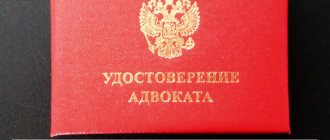Pre-trial cooperation agreement: what is it and why is it needed?
A pre-trial cooperation agreement can be defined as a mutually beneficial agreement between the prosecution and the defense, which regulates the conditions of liability of the suspect or accused depending on the assistance they provide to law enforcement agencies.
The final decision on signing such a deal is made by the prosecutor. The main goals of the rules governing this institution are to increase the efficiency of solving multi-episode crimes and acts committed by organized groups, to protect the rights of the accused in criminal court, and to simplify and speed up the investigation of criminal cases. As statistics show, the introduction of this institution led not only to facilitating the investigation process, but also to the identification of crimes about which the investigation previously had no information.
For persons who decide to confess, tell about the location of hiding accomplices or wanted property, indicate an impending crime, or otherwise help the investigation, a pre-trial agreement is considered an undoubted blessing. Firstly, the case against such a citizen is separated into separate proceedings, secondly, the punishment for the crime will not exceed 1/2 of the maximum term (size), and thirdly, if there are appropriate grounds, these persons, as well as their relatives people are provided with state protection, which is provided for by Federal Law No. 119 of August 20, 2004.
Article 62. Imposition of punishment in the presence of mitigating circumstances
Appeal ruling of the Judicial Collegium for Military Personnel of the Supreme Court of the Russian Federation dated September 12, 2019 N 201-APU19-42 Punishment for the convicted persons was imposed in accordance with the requirements of the law, taking into account the nature and degree of public danger of the crime committed, information about their personality, mitigating and other circumstances, provided for in Part 3 of Art. of the Criminal Code of the Russian Federation, as well as taking into account the provisions of Part 5 of Art. Criminal Code of the Russian Federation.
Resolution of the Presidium of the Supreme Court of the Russian Federation dated 01.02.2017 N 169P16
In the supervisory appeal, the convicted Schweikert requests the cancellation of the cassation ruling and the transfer of the criminal case for a new cassation hearing, indicating that during the consideration of the criminal case in the cassation court, he was not provided with a lawyer, and therefore his right to defense was violated. In addition, he is challenging the sentence in terms of punishment, when assigning which, in his opinion, the court unreasonably recognized a particularly active role in the commission of a crime as an aggravating circumstance and did not apply the rules of Art. of the Criminal Code of the Russian Federation in the presence of mitigating circumstances provided for in clauses “i”, “d”, part 1 of Art. Criminal Code of the Russian Federation.
Resolution of the Supreme Court of the Russian Federation dated 08/09/2017 N 18-UD17-76
In the cassation appeal and the addition to it, the convicted Filipchenko asks to cancel the cassation ruling, send the case for a new cassation consideration, citing the fact that the lawyer did not participate in the court hearing of the cassation court, which resulted in a violation of his right to defense, and also asks to mitigate the sentence assigned to him punishment in connection with the changes made to Part 1 of Art. of the Criminal Code of the Russian Federation by Federal Law of June 29, 2009 N 141-FZ, since in addition to the confession, the court recognized the positive characteristics from the place of residence as mitigating circumstances, the fact that he had no previous convictions, admitted guilt.
Resolution of the Presidium of the Supreme Court of the Russian Federation dated 09/06/2017 N 148P17
By the decision of the Belovsky City Court of the Kemerovo Region dated March 18, 2013, the verdict against Nadzhimov R.T. in accordance with paragraph 13 of Art. 397, art. 399 of the Code of Criminal Procedure of the Russian Federation has been amended: using Part 1 of Art. The Criminal Code of the Russian Federation (as amended by Federal Law No. 141-FZ of June 29, 2009) commuted his punishment under paragraph “c” of Part 4 of Art. 162 of the Criminal Code of the Russian Federation up to 9 years 11 months of imprisonment, according to paragraphs “a”, “g”, “z”, part 2 of Art. 105 of the Criminal Code of the Russian Federation - up to 12 years 11 months of imprisonment, under Part 3 of Art. , pp. “a”, “g”, “h” part 2 art. 105 of the Criminal Code of the Russian Federation - up to 9 years 11 months of imprisonment; on the basis of Part 3 of Art. of the Criminal Code of the Russian Federation for a set of crimes to Nadzhimov R.T. sentenced to 18 years and 9 months of imprisonment in a maximum security penal colony. The rest of the verdict against Nadzhimov R.T. left unchanged.
Appeal ruling of the Judicial Collegium for Criminal Cases of the Supreme Court of the Russian Federation dated September 26, 2017 N 91-APU17-5
According to Part 4 of Art. According to the Criminal Code of the Russian Federation, in the event of concluding a pre-trial agreement on cooperation, if the corresponding article of the Special Part of this Code provides for life imprisonment or the death penalty, these types of punishments are not applied. Based on the above requirements of the law, a criminal case against Monakhov, accused of committing a crime under Part 5 of Art. 228.1 of the Criminal Code of the Russian Federation and who entered into a cooperation agreement was beyond the jurisdiction of the regional court.
Resolution of the Presidium of the Supreme Court of the Russian Federation dated September 27, 2017 N 169P17
In the supervisory appeal, the convicted Chichkov, without challenging the court's conclusion that he is guilty of committing crimes, asks for a mitigation of his sentence. In support, he indicates that the court established mitigating circumstances provided for in paragraph “i” of Part 1 of Art. of the Criminal Code of the Russian Federation, but no aggravating circumstances have been established. Consequently, at the time of consideration of the criminal case in cassation procedure it was subject to application in accordance with Part 1 of Art. The Criminal Code of the Russian Federation has a new criminal law (Part 1 of Art. of the Criminal Code of the Russian Federation as amended by Federal Law of June 29, 2009 N 141-FZ), which improves its position, which was not done by the court of cassation. In this regard, there are grounds for mitigating his sentence under Part 3 of Art. , pp. “a”, “g”, “h” part 2 art. 105 of the Criminal Code of the Russian Federation using Part 1 of Art. Criminal Code of the Russian Federation (as amended by Federal Law dated June 29, 2009 N 141-FZ). In addition, the courts of first and cassation instances, in his opinion, did not take into account such a mitigating circumstance provided for in paragraph “g” of Part 1 of Art. of the Criminal Code of the Russian Federation, as the presence of a young child, which also provides grounds for mitigating his sentence, including under Part 2 of Art. 209 of the Criminal Code of the Russian Federation.
Appeal ruling of the Judicial Collegium for Criminal Cases of the Supreme Court of the Russian Federation dated October 4, 2017 N 72-APU17-21
In the appeals - main and additional - the convicted Igoshin expresses disagreement with the imposed punishment, considers it excessively harsh and unfair, believes that the consistent application of the provisions of Part 4 of Art. of the Criminal Code of the Russian Federation when assigning punishment for each crime and Art. 69, based on the totality of crimes, does not allow a punishment of this size to be imposed; indicates that the amount of punishment under Part 2 of Art. 105 of the Criminal Code of the Russian Federation should not exceed 13 years 4 months of imprisonment, and for the totality of crimes - 20 years of imprisonment. Indicates that he entered into a cooperation agreement on July 25, 2013, that is, before the adoption of Resolution of the Plenum of the Supreme Court of the Russian Federation dated December 22, 2015 N “On the practice of imposing criminal punishment by the courts of the Russian Federation,” where paragraph 51 provides an explanation that apparently guided the court , giving him a punishment. Believes that the provisions of this Resolution worsen his situation and cannot be applied to him, instructions on the imposition of punishment under Art. The Criminal Code of the Russian Federation without taking into account the rules of Art. The Code itself does not contain the Criminal Code of the Russian Federation and he must be sentenced for the totality of crimes, taking into account the rules of Part 4 of Art. Criminal Code of the Russian Federation; at the same time refers to Art. 54 of the Constitution of the Russian Federation.
Appeal ruling of the Judicial Collegium for Criminal Cases of the Supreme Court of the Russian Federation dated 06/07/2018 N 50-APU18-8
Part 3 Art. , part 5 art. 228.1 of the Criminal Code of the Russian Federation using Part 1 of Art. of the Criminal Code of the Russian Federation to 9 years in prison. Based on Part 3 of Art. of the Criminal Code of the Russian Federation for the totality of crimes by partial addition of punishments to Nurimbetov B.I. sentenced to 16 years of imprisonment in a maximum security penal colony;
Appeal ruling of the Judicial Collegium for Criminal Cases of the Supreme Court of the Russian Federation dated June 14, 2018 N 81-APU18-7
Fursova’s punishment was imposed taking into account all the circumstances affecting the punishment, including the application of the provisions of Part 1 of Art. of the Criminal Code of the Russian Federation if the case materials contain Fursova’s confession, her active contribution to the detection and investigation of the crime and the absence of aggravating circumstances. In this connection, there are no grounds for mitigating it.
Appeal ruling of the Judicial Collegium for Criminal Cases of the Supreme Court of the Russian Federation dated May 23, 2018 N 41-APU18-6
lawyer Mikhailova M.M. in defense of the interests of the convicted Miroshnichenko S.S. asks to cancel the verdict and make a decision to acquit her client. In support, he argues that there is no evidence of Miroshnichenko’s involvement in the deprivation of the victim’s life; the blows inflicted by V. Miroshnichenko are not causally related to the death of the victim; Experts did not find any traces of impact from these blows on the victim’s body; from what exact actions and from the influence of what object the death of the victim followed was not clarified during expert research; the circumstances of the intent to kidnap the victim do not correspond to those established by the investigative authorities; the trial of the case was conducted with an accusatory bias, the assessment of the evidence given by the court is biased; When assigning punishment to Miroshnichenko, the court did not sufficiently take into account the provisions of Art. - The Criminal Code of the Russian Federation, the attitude of the convicted person to the crime, the presence of mitigating circumstances in his actions, imposed an unfair, excessively harsh punishment;
Appeal ruling of the Judicial Collegium for Criminal Cases of the Supreme Court of the Russian Federation dated April 10, 2018 N 3-APU18-3
In addition, the court should have applied the provisions of Part 1 of Art. of the Criminal Code of the Russian Federation, and therefore had no right to sentence him to more than 13 years and 4 months of imprisonment. The court did not take into account his positive characteristics, that he had no previous convictions, was not brought to administrative responsibility, has four minor children, worked as a veterinarian for more than 10 years, as well as the testimony of witnesses who positively characterize him as a calm, non-aggressive, non-abusive person. alcohol, not capable of causing harm to a person, as a responsible and hardworking worker.
Status of a subject cooperating with the investigation: what will change?
Now the status of persons who signed a pre-trial agreement is no different from the status of persons who did not do so. However, in practice, a dispute often arises: who such an accused actually is in relation to the main criminal trial. This individual does not act as an accused in the main case, but is also not recognized as a witness, since he is interested in the outcome of the trial.
Protecting the rights of the accused and eliminating a gap in the legislation are the two main reasons why, in early January 2022, the Ministry of Justice introduced a high-profile bill to the State Duma. According to the Ministry of Justice, the Code of Criminal Procedure of the Russian Federation should be supplemented with two articles: one of them establishes the legal status of the person who signed the agreement, and the second establishes the procedure for interrogation and reading out evidence in the courtroom.
The creators of the bill propose to give the accused the same rights as a witness, except for the right to refuse to testify against themselves and their close relatives. In addition, the accused will be assigned new responsibilities - immediate appearance when summoned by the investigator or the court, as well as non-disclosure of information that became known to him at the stage of the preliminary investigation.
Second commentary to Art. 62 of the Criminal Code of the Russian Federation
1. The article provides for different types of accounting for mitigating circumstances. As a rule, accounting is carried out with a correction of the maximum terms (amounts) of punishment established by a specific article of the Special Part.
2. When the court establishes the surrender of a guilty person or active assistance in the disclosure or investigation of a crime, the exposure and criminal prosecution of other accomplices in a crime, the search for property obtained as a result of a crime (clause “i” of Part 1 of Article 61 of the Criminal Code), or the fact of rendering them medical and other assistance to the victim immediately after the commission of a crime, or voluntary compensation for property damage and moral harm caused as a result of the crime, or other actions aimed at making amends for the harm caused to the victim (clause “k” of Part 1 of Article 61 of the Criminal Code) , if no aggravating circumstances are identified in the case, the term or amount of the imposed punishment cannot exceed two-thirds of the maximum term or amount of the most severe type of punishment provided for by the relevant article of the Special Part of the Criminal Code.
3. If, along with the circumstances specified in Part 1 of Art. 62 of the Criminal Code, the court will establish the presence of other mitigating circumstances, the punishment must be imposed taking into account all mitigating circumstances (clause 36 of the PPVS 2015).
4. In case of a pre-trial agreement on cooperation, in the presence of circumstances provided for in paragraph “i” of Part 1 of Art. 61 of the Criminal Code, the term or amount of the imposed punishment cannot exceed half the maximum term or amount of the most severe type of punishment provided for the crime committed. If these circumstances are not established, then the term or amount of punishment cannot exceed two-thirds of the maximum term or amount of the most severe type of punishment in the form of imprisonment, provided for by the relevant article of the Special Part of the Criminal Code. But these provisions apply if the person has fulfilled the terms of the pre-trial cooperation agreement (Article 63.1 of the Criminal Code) (Clause 38 of the PPVS 2015).
5. Rules for imposing punishment established by Part 4 of Art. 62 of the Criminal Code are also applied in the presence of circumstances aggravating the punishment (clause 38 of the PPVS 2015).
6. Two-thirds of the maximum term or amount of the most severe type of punishment provided for the crime committed is the limit for the punishment imposed on the person in respect of whom the criminal case was considered in the manner prescribed by Chapter. 40 Code of Criminal Procedure. In the case specified in Art. 226.9 of the Code of Criminal Procedure, the limit is one-half of the maximum term or amount of the most severe type of punishment provided for the crime committed.
7. When establishing the circumstances provided for by both Part 5 and Part 1 of Art. 62 of the Criminal Code, a set of rules for mitigation of punishment is applied: first, the provisions of Part 5 of Art. 62 of the Criminal Code, then - Part 1 of Art. 62 of the Criminal Code. Thus, the maximum possible punishment in these cases should not exceed: two thirds of two thirds - when considering a criminal case in the manner provided for in Chapter. 40 of the Code of Criminal Procedure, and two-thirds of one-half - in the case specified in Art. 226.9 Code of Criminal Procedure (clause 39 PPVS 2015).







